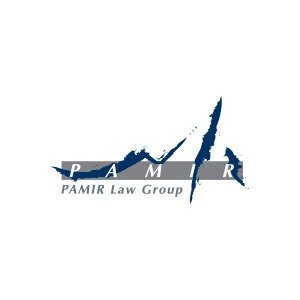Best Intellectual Property Lawyers in Taiwan
Share your needs with us, get contacted by law firms.
Free. Takes 2 min.
Or refine your search by selecting a city:
List of the best lawyers in Taiwan
About Intellectual Property Law in Taiwan
Intellectual Property (IP) law in Taiwan is designed to protect the creations of the mind, which can include inventions, literary and artistic works, designs, symbols, names, and images used in commerce. Taiwan has a comprehensive legal framework for IP, influenced by international agreements and practices, ensuring that the rights of creators and innovators are secured. The main areas covered include patents, trademarks, copyrights, and trade secrets.
Why You May Need a Lawyer
There are numerous situations where an individual or business may require legal assistance related to Intellectual Property in Taiwan:
- Registering patents, trademarks, or copyrights to ensure proper protection of your IP assets.
- Handling IP disputes, including infringement issues or challenging the rights of others.
- Negotiating licensing agreements or contracts involving IP rights.
- Seeking advice on compliance with Taiwanese IP laws and regulations.
- Protecting against unfair competition or counterfeit goods affecting your business.
- Advising on the commercialization or monetization of IP assets.
Local Laws Overview
Taiwan's IP laws are comprehensive and cover several areas:
- Patents: Governed by the Patent Act, encompassing inventions, utility models, and designs. Patent protection requires registration and lasts for 20 years from the application date for inventions.
- Trademarks: The Trademark Act protects symbols, logos, and slogans. Registration is necessary, with protection lasting ten years and renewable.
- Copyrights: Automatic upon creation of a work in tangible form, with protection lasting the creator's lifetime plus 50 years.
- Trade Secrets: Protected under the Trade Secrets Act, focusing on confidentiality and misuse of business information.
Frequently Asked Questions
1. How can I file for a patent in Taiwan?
To file for a patent, you must submit an application to the Intellectual Property Office (TIPO), including a detailed description of the invention, claims, and necessary drawings. Assistance from a patent attorney is advisable.
2. What is the process for registering a trademark in Taiwan?
You need to file a trademark application with TIPO, providing information on how you use the trademark, the goods or services related to it, and the necessary graphic representation.
3. Are there any fees involved in filing for IP protection?
Yes, there are application fees and, depending on the IP type, maintenance fees. The costs vary by the type of protection sought and can be confirmed with TIPO or a relevant lawyer.
4. What are common IP infringement issues in Taiwan?
IP infringement often involves unauthorized use of trademarks, patent rights violations, or copyright infringements in digital and printed media.
5. Can foreigners protect their IP in Taiwan?
Yes, foreign individuals and companies can protect their IP in Taiwan by applying through local representatives and meeting the requirements as stipulated by TIPO.
6. How can I enforce my IP rights against infringement?
You can send a cease-and-desist letter, negotiate settlements, or take legal action through the courts, supported by an attorney specializing in IP law.
7. What should I do if I receive an IP infringement notice?
Consult with an IP lawyer to assess the claim, understand your options, and prepare an appropriate response or legal defense.
8. Are there alternative dispute resolution mechanisms for IP cases?
Yes, mediation and arbitration are available and often recommended to resolve disputes more efficiently and amicably.
9. How does Taiwan handle international IP treaties?
Taiwan is not a member of the World Intellectual Property Organization (WIPO) but adheres to several international agreements, ensuring compatibility with global IP standards.
10. What steps are involved in enforcing global IP in Taiwan?
It's necessary to file separate applications in Taiwan or ensure your international applications extend to Taiwan, often requiring cooperation with local IP professionals.
Additional Resources
Consider the following resources for further assistance:
- Taiwan Intellectual Property Office (TIPO) for official guidelines and applications.
- Local legal firms specializing in IP law.
- Taipei Bar Association for finding qualified legal professionals.
- Chambers of Commerce for networking and advice on business implications of IP.
Next Steps
If you require legal assistance in relation to Intellectual Property in Taiwan, start by gathering all relevant information and documents related to your case. Then, contact a qualified IP attorney or legal firm specializing in this field. Prepare to discuss your matter in detail, outlining your objectives and any previous actions taken. Following legal advice, you might proceed with filings, negotiations, or enforcement actions as necessary.
Lawzana helps you find the best lawyers and law firms in Taiwan through a curated and pre-screened list of qualified legal professionals. Our platform offers rankings and detailed profiles of attorneys and law firms, allowing you to compare based on practice areas, including Intellectual Property, experience, and client feedback.
Each profile includes a description of the firm's areas of practice, client reviews, team members and partners, year of establishment, spoken languages, office locations, contact information, social media presence, and any published articles or resources. Most firms on our platform speak English and are experienced in both local and international legal matters.
Get a quote from top-rated law firms in Taiwan — quickly, securely, and without unnecessary hassle.
Disclaimer:
The information provided on this page is for general informational purposes only and does not constitute legal advice. While we strive to ensure the accuracy and relevance of the content, legal information may change over time, and interpretations of the law can vary. You should always consult with a qualified legal professional for advice specific to your situation.
We disclaim all liability for actions taken or not taken based on the content of this page. If you believe any information is incorrect or outdated, please contact us, and we will review and update it where appropriate.
Browse intellectual property law firms by service in Taiwan
Taiwan Attorneys in related practice areas.
Browse intellectual property law firms by city in Taiwan
Refine your search by selecting a city.














